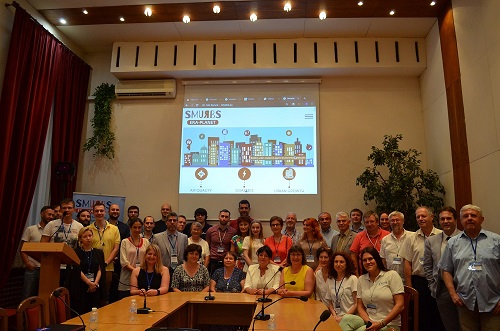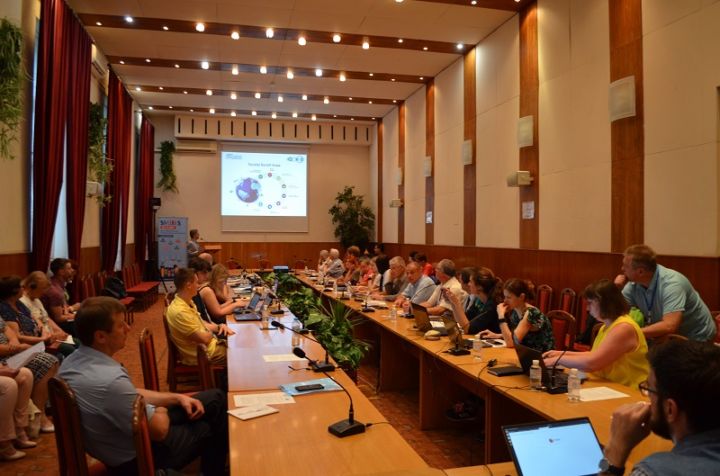SMURBS successfully organized the 2nd Stakeholders’ workshop on User Needs, held in Kyiv Ukraine, 4 June 2019. Twenty four representatives from 15 state bodies, public organizations (NGOs) and Institutions of Ukraine interacted with experts from 12 European scientific centers from 9 countries (Greece, Spain, Switzerland, Sweden, Italy, Romania, Czech Republic, Slovenia, Finland) .

Among environmental stresses, land degradation and climate change were highlighted.
To this end, data on land cover, land productivity, carbon stocks, carbon and greenhouse gases were noted as essential.
Other data stated of relevance and importance are the Urban Atlas products and the air quality relevant satellite retrievals.
With respect to the in situ platforms and especially to the new technologies, the certification of measurement instruments is of utmost importance for the credibility of outputs.
The need to broadly disseminate scientific results on the urban environmental issues is already identified in Kyiv, and a publicly available portal to report on the current status of the city is under development.
‘Cooperation’ was the most highlighted pursuit during this workshop. SRI participation in the ERA-PLANET program facilitates Ukraine’s contribution to Copernicus. In addition, Ukraine’s bonds with Europe can be further strengthened through the country’s participation in the GEO-CRADLE initiative. Last, cooperation among research institutes, NGO’s and the city authorities is a basic ingredient to combat modern urban environmental pressures.

The workshop’s outcome will critically complement the other user-needs gathering activities of SMURBS (online survey, interviews, workshops). Last but not least, this workshop was a great opportunity to acquaint the participants with the latest advancements of the SMURBS project, to discuss smart-city initiatives in different sectors, and to engage the Ukrainian Authorities and Institutes with GEO, the GEOSS system, the Copernicus services and the GEO-CRADLE initiative.

